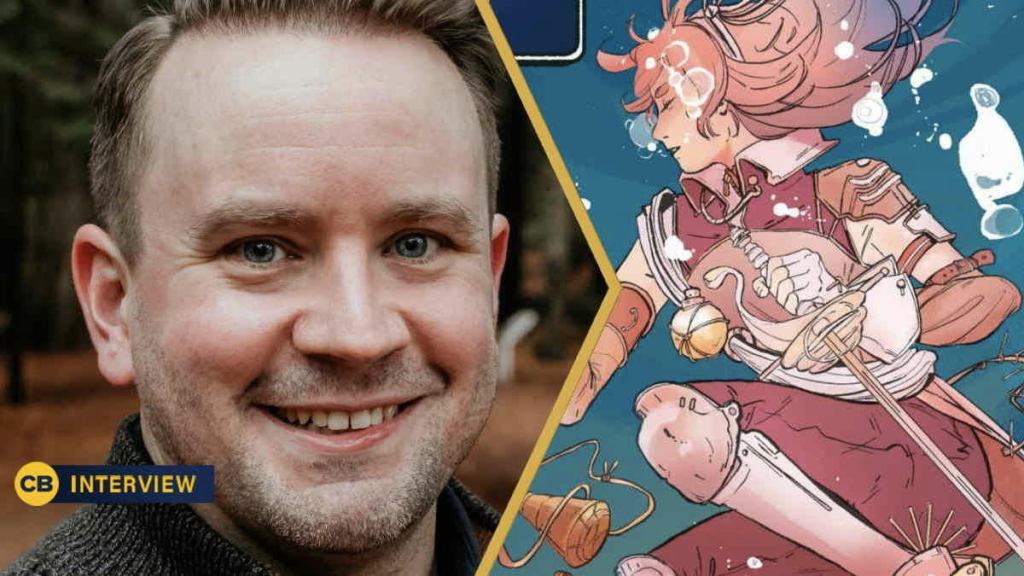Aidan Moher has literally written the book on Japanese role-playing games. The Hugo Award-winning editor and journalist, whose work has appeared at Wired and Kotaku among other outlets, has written his first book. Titled Fight, Magic, Items: The History of Final Fantasy, Dragon Quest, and the Rise of Japanese RPGs in the West, the book chronicles the ups and downs of JRPGs’ presence and popularity in North America, from the genre’s inception with Yuji Horii and Hironobu Sakaguchi creating Dragon Quest and Final Fantasy, respectively, to the 32-bit boom, to the work of a new generation of designers that grew up playing those 8, 16, and 32-bit classics.
Videos by ComicBook.com
Moher put a lot of personality and personal experience into Fight, Magic, Items, making it a rich, satisfying, and entertaining read. With only two weeks left until the book goes on sale to the public, ComicBook.com caught up with Moher to chat about how Fight, Magic, Items came together and what he thinks the future has in store for the JRPG genre.
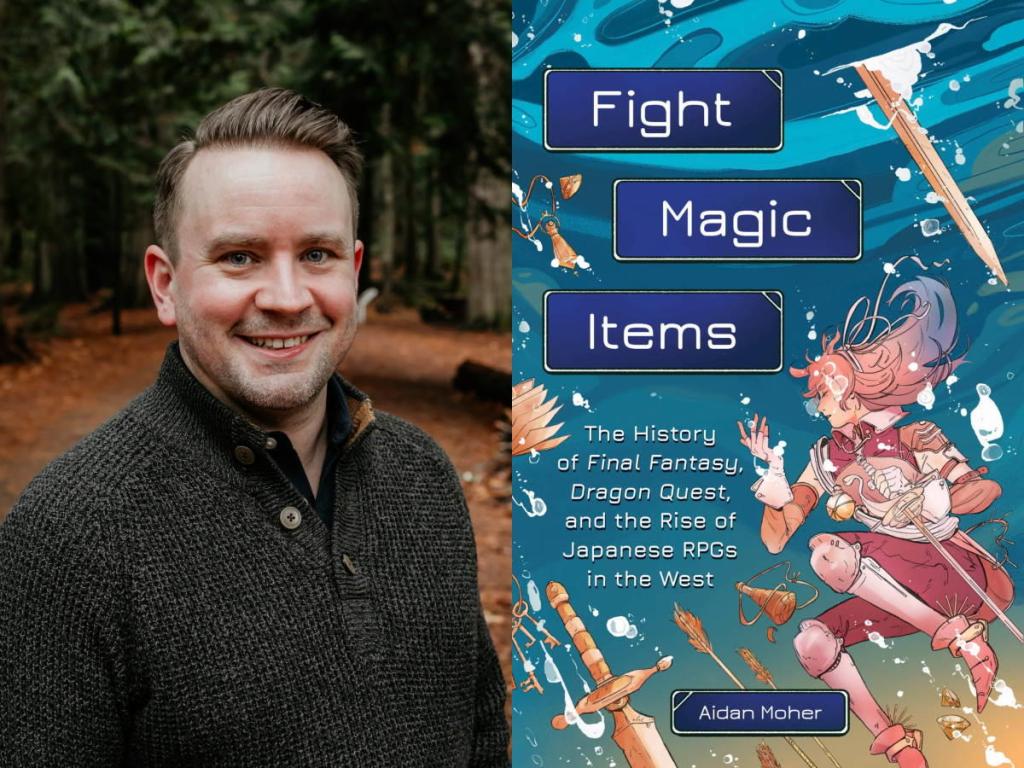
Jamie Lovett, ComicBook.com: There are lots of JRPG fans out there, and other journalists who talk cover them. Not all of them think, “I’m going to literally write the book on JRPG.” What inspired you, or possessed youtube says, “You know what? I’m going to make a book out of this. I’m going to tell this story, from the North American perspective?”
Aidan Moher: When I made that leap to games journalism a few years ago, I came in with the idea that Japanese RPGs and video games have been a part of my life forever. I am in my late 30s. I’m among the first generation of people who grew up with video games as just a part of life. They weren’t something new, they just existed.
Japanese RPGs weren’t always my favorite thing. When I was a kid, I talk in the book about how I just wanted to play Ninja Turtles and Mario and platformers and more fast-paced action-based games. Japanese RPGs seemed a little weird and boring at first, but eventually, I figured out that if I look at them from a different angle, if I looked at them as these playable books, they were right on my alley because I’m a big reader and I read a lot of books, I read a lot of epic fantasy, and these games were like books you could read.
But above and beyond that, as we grew up, my friends were also really into Japanese RPGs and they became a catalyst that brought us all together. I have fond memories of hauling my computer monitor, this old Commodore 1702 computer monitor, hauling my PlayStation over to my friend’s house, and we would stack them back to back so we couldn’t spoil each other because we’d be playing the same single player Japanese RPG back to back and we would just hang out for hours playing our own versions of the game. It’s such a fond memory for me.
And then as a writer, as an adult, I’ve got little kids and I’m watching them experience games and growing up into games, and I was like, “You know what? I have all of these memories, all of these experiences based around video games and Japanese RPGs as youth and they mean so much to me. How do I bring that forward? How do I tell those stories using nostalgia to create a shared experience with readers.”
And then, as I started to write, I knew that this would be a shared experience other people have. And a lot of the earlier reviews touch on that. They say the book feels like you’re just sitting across a table from a friend gabbing about games that you both love back in the day. And so, I wanted to bring that into all of my writing, just feeling like, “This is a shared experience. Let’s enjoy this together. Let’s remember these things together.” Whether we played the same games or we played different games, everybody can relate to that idea of bonding over video games.
And I think Japanese RPGs have been coming back into the spotlight a little bit. During the transition to the HD era, they had a tough transition, but I think nowadays they’ve come back. All sorts of Japanese RPGs from Persona, which is turn-based and more traditional, to what Final Fantasy is doing, which is pushing boundaries and trying to draw in more casual gamers. It’s just a really healthy genre right now and I want to be able to share those experiences with people. Whether they’re current fans, they’re lapsed fans, they’re just curious about why people like these games that are just words and menus.
And then people let me write it, and that was a surprise to me as much as anybody. I love these games, and I love writing about them, but then my agent loved the idea, and then he found an amazing editor at Running Press, who loved the idea, and convinced their publisher that it was an awesome idea. And so, it just came together through this great support network because these are shared experiences that we all have, that we all fall back on. And as adults and as people who are working and writing and making books, we all look back on these experiences and are like, “That was childhood,” but not just childhood, it was as a teenager and now, it’s in our adulthood as well. And so, you have people who are interested in reading it.

You mentioned that JRPGs seemed to be having a little bit of a resurgence recently. There are certain games that have reached a surprising level of success. I don’t know that anyone expected Fire Emblem: Three Houses to be as big of a deal as it ended up being, for example. What do you think have been the defining games, or even series, of this moment?
I think there are a few different things going on. Fire Emblem is a great example and I think you put that alongside Persona 5. The Persona series. 1 and 2 weren’t very successful in the States. 3 and 4 found a good audience; I love them dearly. 5 just blew up, and I think that you can see a parallel there with Fire Emblem: Three Houses because they’re built around relationships and people going through not just the epic JRPG storyline together, but going through everything else. They’re going through school together. They’re going through the growing pains of adolescence and young adulthood.
And so, the way that the Persona Series and Fire Emblem merge those everyday aspects of life and relationship building with more traditional or more recognizable JRPG tropes really worked for everybody because they were fun worlds to hang out in, not just explore. You weren’t just there to push around the next corner in the dungeon. You’re there to hang out with some friends. And I think that’s really appealing to us right now.
But then on the flip side, one of the game series that just continues to blow my mind is Nier. Yoko Taro’s Nier series has somehow become this humongous hit that exceeded just Japanese RPG fans, but has a mainstream following and has a mobile game now. When I played the first Nier,10 years ago, whenever it first came out, I would never have told you that you could squeeze a sequel out of this, let alone a sequel that would sell 5 million copies and get a mobile spin-off and then appear in Final Fantasy games, in the MMO and stuff like that.
And so, I think you also have creators like Taro who just experiment and they’re hitting on things that Japanese RPGs do really well, and you have a gaming audience that’s grown up with these games. They’re not new anymore. The creators grew up playing them and the fans have grown up playing them, and that makes it more accessible than they’ve ever been before.
I think Nier is really interesting because I think if you took 100 universes, in 99 of them Nier would probably have just been a little cult hit that its fans really love but it never went anywhere, and we just got fortunate enough to live in this 1-out-of-100 universe where Nier blew up and became something humongous, and that’s pretty fascinating to me because it’s so different than something like Fire Emblem: Three Houses.
And then on the third game I want to hit on, which I mentioned earlier, is Final Fantasy XIV, which is a fascinating story, just in and of itself, the way that the initial version was a disaster, literally, a disaster. They blew up the world, rebuilt it thanks to Yoshi-P, and now it’s huge, and it has such a broad audience base that loves it as an MMO, but also loves it as a Final Fantasy game because it has all of those elements that Final Fantasy gives us. But it also gives a canvas that can touch on and appeal to every type of Final Fantasy fan, because it can go into Final Fantasy IV storyline stuff through some of the raids, or Final Fantasy Tactics, and I think that idea of it being a place where the player can define their own relationship with it makes it really approachable. And then that creates people who weren’t interested in Japanese RPGs before, maybe, they only had played World Warcraft, and now they’ve gone on to Final Fantasy XIV and they’re like, “Oh, hey, this Final Fantasy stuff is cool. Love to go check some of the rest of it out.” That creates fandom as they get deeper and deeper into things.
Then everything’s just more accessible than it’s ever been. On the Switch in the PlayStation 4, there are just so many Japanese RPGs. It’s never been easier to play a lot of them. For a long time, the genre disappeared from the console space, more or less. They were on handhelds, but you also didn’t have access to the classics. Now, Final Fantasy VII Remake came out, but back in the day, you couldn’t just play Final Fantasy VII, the original one. There were no technological opportunities to do that unless you owned a PlayStation and a copy of the disc. Accessibility is big. Being able to hop on any of your game consoles and download Final Fantasy VII for 20 bucks and play it and check it out, I think that that encourages people to explore maybe more than we did 10 or 15 years ago.

You mentioned the relationship systems and stuff like Fire Emblem: Three House, and you brought up Final Fantasy XIV. There are two patterns I’ve noticed that maybe are the same. Yoshi-P said something recently that caused a little fandom stir when he talked about Final Fantasy XVI having action-based combat instead of being turned-based combat because they were trying to court a larger, more mainstream audience. Then, on the other hand, you have games like Fire Emblem: Three Houses, Persona 5, and Trails of Cold Steel that pair turn-based combat with a social bond system, and I believe the Wild Arms successor that just got Kickstarted, Armed Fantasia, is doing the same. It feels like that is a trend for people going the turn-based route. So I guess I’m wondering, is this direction things are going, where it’s turn-based with a social focus on one side, and mainstream-focused action on the other? Do you have a take on it or a preference?
I think it’s interesting to think about. At the beginning of the PlayStation era, you had the Golden Age of Japanese RPGs, the First Golden Age, as I think of it, during the Super NES, and before that, the NES. If you look at a game like Chrono Trigger, the polished end state of that idea that started in the 8-bit realm with Final Fantasy and Dragon Quest, Chrono Trigger is literally a coming together of those two series. It’s super polished. And then you get to the PlayStation era — and bear with me here, I will get to the present day — but you get to the PlayStation era and things kicked off with Wild Arms and Suikoden, and they were pretty traditional. They looked a lot like Super NES games. They were structured like Super NES games. Then, we hit Final Fantasy VII, and it was not anything like a Super Nintendo game, not just because the graphics were pretty, but because the structure was entirely different. Its approach to cinematic storytelling was entirely different.
I’ve always felt like there’s an inflection point there that you have in JRPGs. Underneath one umbrella you have what in the book I call “Saturday morning JRPGs.” That would be like your Wild Arms, your Breath of Fire 3 and 4, Lunar.
On the other side, I think I call them “primetime JRPGs.” They’re the ones that are maybe a little more mature, maybe a little more focused on cinematic and visual storytelling, and they draw on what Final Fantasy VII created. I feel like you had that divergence point. And from there you can trace the influence among a lot of Japanese RPGs that came out after that.
Xenogears falls more along the lines of that Super Nintendo-inspired JRPG. Despite its big, theologically-driven storyline, it’s still fairly simple in its structure and its presentation, whereas you get other ones that were obviously more inspired by Final Fantasy VII like Legend of Dragoon.
I think we’re maybe, just listening to you say that, coming to that next inflection point. I think we’re seeing something like Final Fantasy VII, where Yoshi-P is like, “Well, we’re going to be action-based because we want a mainstream audience,” and that is just exacerbating the blending of genres, that JRPGs are no longer their own little siloed, strange little genre that really appeals to Japanese RPG fans. It’s now almost becoming a suite of gameplay ideas, story structures, and tropes that can be applied more broadly to different genres or melting pots of different genres. You look at a series like Assassin’s Creed and it’s brought in a bunch of stuff that you could say are Japanese RPG tropes or structures or systems. And so you see in Final Fantasy, it’s like, “Oh, we’re going to go action-based because that’s going to appeal to more people.” That’s because JRPGs are becoming not just a singular siloed thing. But then on the other side, you see the Wild Arms and Shadow Hearts creators launching their Kickstarter for games that look very distinctly in that silo of, “Oh, these are JRPGs for JRPG fans.” And so, I think we can look at those as both honest evolutions of what Japanese RPGs are.
There are ones that are sticking more conservatively to what’s come before, and that appeals to a lot of people. That appeals to me greatly. I’m excited for Final Fantasy XVI, but I also know that it’s going to diverge from my specific tastes. I look at Armed Fantasia that looks like something that I want to sink into a chair with and know, even if its heights aren’t as high as Final Fantasy XVI‘s, it’s going to create an experience over the course of its game that’s going to satisfy that part of me that’s been playing JRPGs since the Super Nintendo. And so, I think they’re both completely valid and they have different ideologies, and different goals.
Would I love to see Final Fantasy bring itself back into being more like the games that I really loved when I was a teenager? Yeah, I would like to see that, but that’s never really been Final Fantasy’s thing. It’s always pushed and explored design space, for better or for worse. When I read Yoshi-P say that they’re doing action-based because they want to appeal to more people, yeah, that’s not what I want from the series, but I get that for a lot of people that is what they want, not just from Japanese RPGs but games. There are lots of people who don’t think about genres the way that I do. There are people who just like video games. They don’t necessarily see the big difference between Horizon Zero Dawn and Nier: Automata and Xenoblade Chronicles 3, and that’s okay as well.
I think what’s interesting, too, though, is you have something like Final Fantasy, which is still driven by a company and leadership there that’s been making these for a long time. They have this idea that Final Fantasy should always carve a new path forward. It’s always about the future. Sakaguchi, he’s not involved in Final Fantasy XVI, but he was famously unhappy with whatever they were working on now. He was always thinking about the next thing, always thinking about, “Oh, what I could do with just a little bit more technology” or whatever. And I think Final Fantasy is still defined by that. It’s always about, “What’s next? How can we really push that envelope?”
I think on the flip side, you have a lot of creators now who grew up playing Japanese RPGs. There’s a blueprint there and they want to bring those experiences forward to a new generation of gamers. That defines and helps them create their new games because they want gamers to experience and appreciate what they loved about Japanese RPGs rather than cutting new cloth.
You talked about JRPGs beings siloed off into their own little corner. That reminded me of old magazines like GamePro that used to literally have an “RPG Corner” section in the back to tell us what games count as RPGs, and we don’t really have that anymore.
Yeah, exactly. It’s like they’re no longer the ostracized little brother of Western PC RPGs or action games or whatever. They all take influence from each other. You can’t look at a game like Final Fantasy XV and not see the influence of something like Skyrim, which I talk about in the book. It’s there, and you see Japanese creators talk constantly about the ways that they’re inspired by Western games. That’s an evolution of a medium that’s really not that old.
Think about the fact that the creators of the genre are still making games. That’s wild to me. You think about modern epic fantasy, you go back to someone like Tolkien or Le Guin and they’re gone. They’re not still making games or books. They’re not still shaping the genres. It’s the people who’ve read those books and grew up with them that are shaping the genre now. But we’re still at a point where Sakaguchi and Horii are still making video games. I think we forget sometimes because it’s been around my whole life, but it’s still in its infancy, and I think that impacts how the games are made and where the path forward is for them.
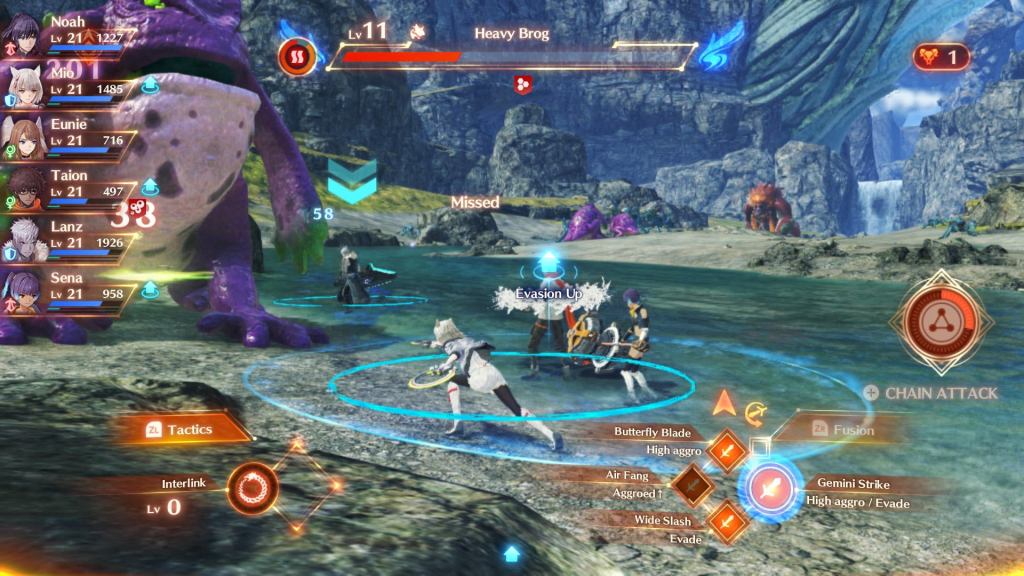
You touched a little bit on your personal tastes when it comes to the genre. I’m curious, are is there any particular subgenre or type of JRPG that you’ve just never been able to get into?
I think the big thing that just is not for me is games that, rather than unifying around a really clever polished gameplay idea or a system, just piles system, on system, on system, on system. I’m playing Xenoblade Chronicles 3 right now, and I find that it’s got so many systems. You have six characters in the party. They all have three special attacks, and if you use them enough, you power up a super special attack, and you also have sub-attacks from other classes that you can link together to do two attacks at once to fill up the special attack, and if you do enough of those, you can get chain attacks, and within the chain attacks you’re accumulating points, and if you get enough points per round, you get another round, and you could revitalize characters, and if you do it in a certain way you might revitalize two characters, and if you do it enough then they can combine into their big mech to do a super move, and you can also use those mechs in regular combat and they have their own system of special moves that have their own unique currency point system that you need to gather to power up, and those moves are separate from the class points that you use to level up. It’s layer on layer on layer of systems, and they’re all separate systems that talk to each other, but it doesn’t feel like a polished piece. And Xenoblade Chronicles 3, I think it’s miles better than 2. 2 just felt like a bunch of systems in a vacuum that didn’t talk to each other.
I see that also in the Tales of series, which have systems on systems, and then you have multiple currencies in the game. I want to see something that takes a clever idea and polishes it and lets the player engage with that because I still play Japanese RPGs for story and environment and characters. I don’t want to be distracted. I don’t want to spend most of my time trying to navigate a bunch of layered systems.
There isn’t one particular subgenre or series that I’m turned off by, but it’s definitely when you feel like there maybe wasn’t enough self-assessment in the design and discovery phases of these games where they’re throwing everything at the wall, but then picking everything and take everything out except the three or four or five best ideas.
Again, we go back to Final Fantasy VII and always wanting to explore new design space. I think so many Japanese RPGs now feel like if they don’t feel like they’re doing something completely unique and new that they’re not adding value to the genre. Whereas I look at something like Dragon Quest XI, which was very conservative in its systems, but it’s so tightly polished and it’s so robust in what it does, and it only asks the player to focus on this one type of character growth system. Then the majority of your time is spent exploring environments, getting into combat, building up your characters, exploring side quests, and that’s what I would like to see. But again, that comes back to roots and tastes that have been defined through the years.
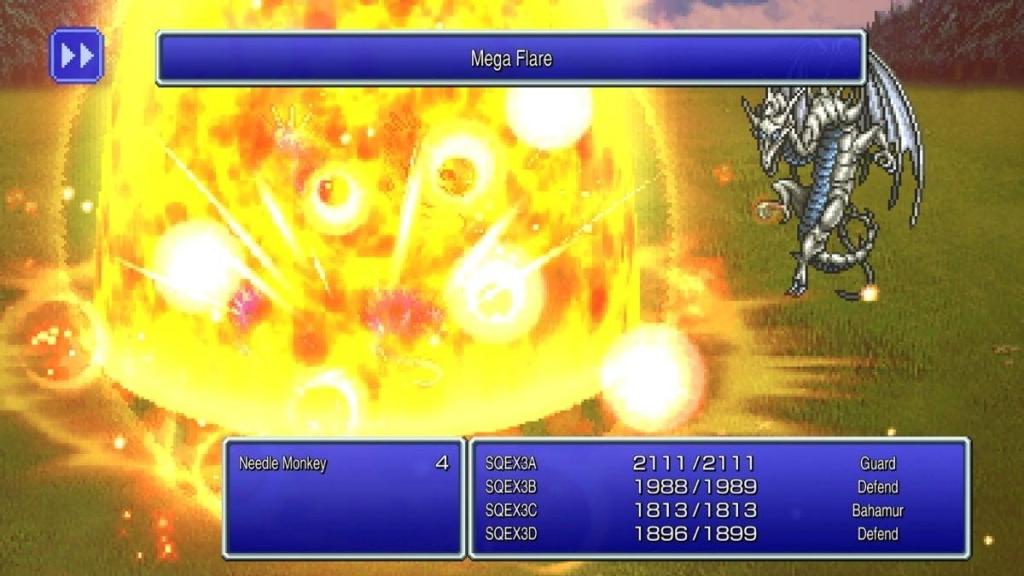
Returning to the book, is there anything that stands out in your mind while writing it that was particularly challenging? Or was there a connection or theme that surprised you as it emerged? Or maybe something fascinating that ultimately had to be cut because it just didn’t fit into the finished book?
Yeah, all of those things, because they’re all related, too. The book is about 110,000 words. I pitched it at 70,000 words, so it was significantly longer than I expected it to be, and I still feel like I left out so much story. But that’s also made the book better. It helped me understand the story that needed to be told. I explicitly didn’t want this book to feel like just a bunch of Wikipedia entries that just hit as many bullet points as it could. I wanted emotion. I wanted stories in there. Specifically, I wanted to tell the history of Japanese RPGs and the people who made them. I wanted to bring people to the forefront.
I wrote it very quite quickly. I wrote it in about three and a half months, including all the research, and I realized that I kick off the book with Sakaguchi and Horii, who created Final Fantasy and Dragon Quest, and that they were the catalyst and that they were the throughline through the whole book. They are still working, like I said earlier, and so focusing on that, looking at their careers, their startings, and the creations that they made and how those influenced others.
And so looking at topics, bringing in games, bringing in ideas and themes that come back to what Sakaguchi and Horii created was really important. That meant there are some gaps. I really wanted to write about the Sega Saturn because it’s an incredible Japanese RPG system in Japan, It has so many good JRPGs in Japan, but it had no impact in the West. That was one that I had outlined early and I was really excited for, lining up interviews for, but then once you’d started looking at that shape of the book, you’re like, “No, this doesn’t support the idea of the book,” which is these two Japanese creators, who create a genre that’s then taken up by other people, taken up by other creators and by fans and then those stories are filling the edges.
So doing all of that, sorting through so many research articles and interviews to find that most compelling version of that story was a big challenge. And also, just fighting that impulse to put in every game I could possibly think of whether it supported that overall story or not. I was fortunate to do this at Running Press. It’s an incredible publisher and they do lots of visual books, coffee table books, and visual guides and stuff like that, and they were keen on this idea of having game highlights throughout the book. So, as you’re reading the book, you might be in a chapter that’s about Phantasy Star and Rieko Kodama and the impact she had and her legacy, but then in that chapter, maybe I referenced a different game and I’m able to do a little sidebar pullout where I can give a little brief introduction to that game, its key staff and stuff like that, to highlight about 40 extra games that don’t have necessarily a big narrative chunk of the book devoted to them but had some impact or importance to the genre in some way and highlight those for readers who might not be familiar with them or might just get a kick out of seeing their favorite game mentioned in the book.

For somebody who is looking at this book who maybe isn’t the biggest Japanese RPG fan but is interested in gaming history in general, do you see something in this rise and fall and rise again of JRPGs in North America that can be applied to the wider gaming industry? What lessons are there, or narratives, that people will find fascinating and familiar even if they’re not necessarily as fascinated or familiar with the genre?
I very intentionally wanted to write a book that was for more than just hardcore Japanese RPG fans like myself. There was a lot of nitty gritty. I was reading tons of interviews and I was like, “Oh, this is so cool,” but it’s how the sausage is made stuff.
I wanted to tell a story. My assumption was anybody picking up this book is going to be familiar with video games. I had to make that assumption. I had to make the assumption that they probably know what Final Fantasy is, even if they don’t regularly play it, and they’re going to have those questions in the back of their head about these games.
The way that I wanted to do that, and the reason I wanted to make this book, is it’s a book about compelling stories and journeys of people, fans, and creators. And I think that that journey and that dive into the creative process and what drives creative people to push through and create something magical through very challenging circumstances is compelling whether you’re a fan of these specific things or not.
I read a book called The Perfectionists by Simon Winchester once, and it was all about really minute mathematical engineering work. They’re talking about stuff that I have no personal knowledge of, but he was able to draw forward the stories of the people doing that work in such a compelling way that I was invested in the idea of how you make perfect little coin weights that are precise down to 12 decimal points. I don’t really care about weights, but some people do.
And so you find those stories, you bring them to the forefront. Telling the stories of Yuji Horii and Hironobu Sakaguchi and Rieko Kodama, I wanted to reach back into the past and figure out what drives creative people and then what they inspire in fans that keep fans coming back, fans like me and other people. I think even for people who don’t experience Japanese RPGs, or maybe they used to play them way back in the day but they fell off, I think those stories of creative ambition, creative problem-solving, and perseverance are universal stories that will appeal to all sorts of readers.
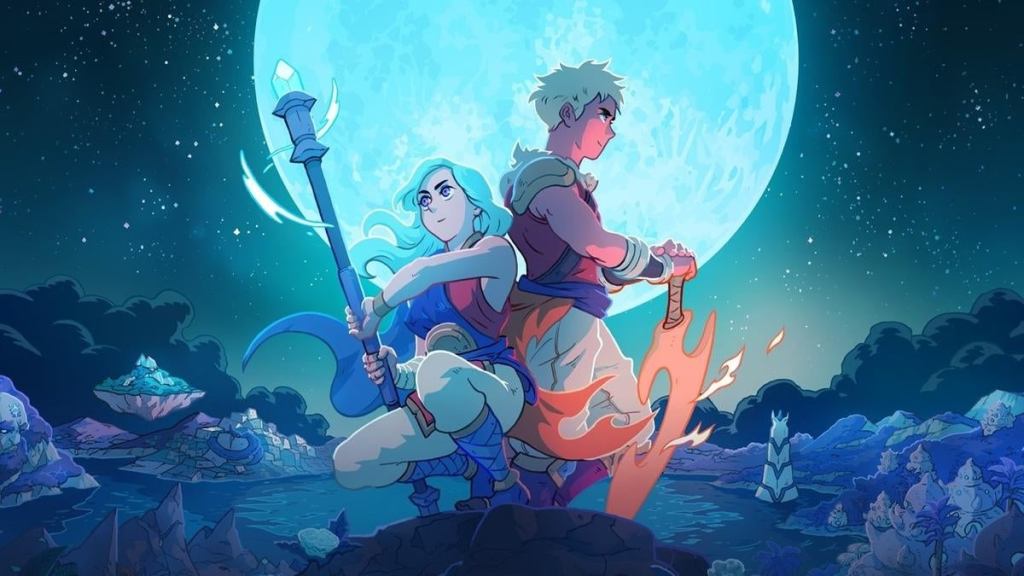
We touched on the current JRPG resurgence and the games that have defined it. What are the games that are on your radar that have you excited about the future, or that you just can’t wait to get your hands on?
The place that I think is really, really interesting with Japanese RPGs, and hearkens back to the genre’s beginnings, is indie game development. There are some indie game studios that remind me of what I was reading about Sakaguchi and Horii way back in the day, that they are these younger groups of really passionate people who grew up playing and inspired by Chrono Trigger, Final Fantasy, Dragon Quest way back in the day, and now they have studios and they’re making games. That’s like Sea of Stars, which is a heavily Chrono Trigger-inspired, they call it “turn-based RPG” because they’re a Western studio based here in Canada. I find that fascinating, that these games were released, that they were inspired by Dungeons & Dragons and Western PC role-playing games, and they were created by Japanese people and dominated by Japanese creators, and now 30 years later, 40 years later, we have young Western studios who grew up playing these games the same way that Horii and Sakaguchi grew up playing Wizardry and Ultima and now they’re making Western versions of Japanese RPGs.
Sea of Stars looks fascinating. So does Quartet, which is another indie studio Japanese RPG that the creators describe as Final Fantasy VI for people with a job. It was created with this new idea in mind. It’s created by a bunch of adults, they have kids, they have mortgages, and they know that not everybody can sink into Xenoblade Chronicles 3 and devote 100 hours. They want it to be 20 hours and every quest in the game is going to take half an hour to complete.
And so, there’s this rethinking of what Japanese RPGs are for a modern era. You think about Yoshi-P saying, “Oh, modern Japanese RPGs, they should have action-based combat because that what’s appealing.” But that’s appealing to a certain demographic. What’s appealing to moms and dads who can game for half an hour after their kid is in bed and the kitchen is cleaned is being able to pick up a game that they can complete a quest or a story chunk in 20 minutes. That rethinking of what Japanese RPGs are for modern gamers is super compelling to me.
On the flip side, you have Eiyuden Chronicle, which is a spiritual successor to Suikoden and it’s made by some of the original creators of Suikoden. So you have people who were making Japanese RPGs and the way the genre changed and the financial ecosystem of the gaming industry changed meant they couldn’t make Suikoden anymore in the way that they used to. But now, they’re finding new ways through Kickstarter and through indie studios to create a spiritual successor that, I think, looks pretty incredible.
This interview has been edited for length and clarity. Fight, Magic, Items: The History of Final Fantasy, Dragon Quest, and the Rise of Japanese RPGs in the West goes on sale on October 4th.

